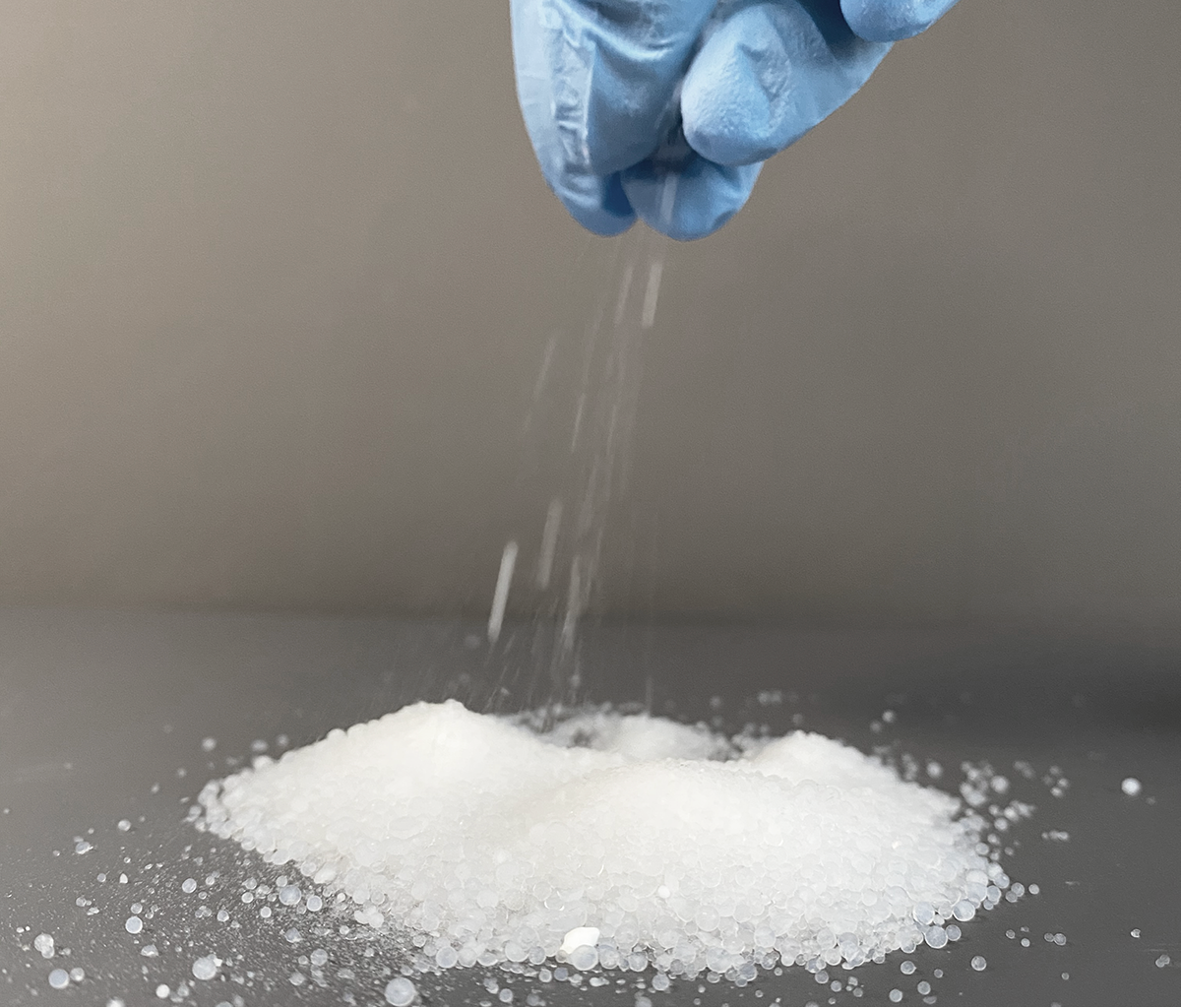Aerogel granules are typically obtained by first forming a gel from a precursor material such as silica or carbon and then removing the liquid component of the gel through a process called supercritical drying. This process preserves the gel structure and provides a highly porous solid material. The resulting Aerogel is then crushed or ground into granules of various sizes.
Some Application Areas
- Ballistic Protection
- Thermal Insulation
- Fuel Storage and Supply Systems
- Protection of Electronic Equipment
- Submarines and Warships
- Ignition Control Systems
These granules retain many properties of bulk Aerogel, including low density, high surface area, and excellent thermal insulation. They are used in a variety of applications where these properties are advantageous, as lightweight composites, insulation materials, environmental cleaning, and as additives in coatings and paints.
Some potential benefits of using Granulated Aerogel in the defense industry are
- Lightness: Granular Aerogel is an extremely lightweight material. This feature allows it to be used on military equipment without creating an extra burden.
- Thermal Insulation Capabilities: Granular Aerogel has high thermal insulation properties. This provides temperature control of equipment in the defense industry, protecting internal structures or electronic systems from extreme temperature changes.
- Durability: Granular Aerogel has a structure that is resistant to impacts. This feature ensures that equipment in the defense industry lasts for a long time despite being exposed to various conditions.
- Chemical Resistance: Granular Aerogel is resistant to chemicals. This feature ensures the protection of military equipment against chemical attacks.
- Fire Resistance: Granular Aerogel provides protection against fire as it is resistant to high temperatures. This feature helps ensure fire protection measures in military vehicles or facilities.
- Improved Performance: The above-mentioned properties of Granulated Aerogel improve the performance of equipment in the defense industry. It increases operational efficiency and ensures personnel safety by providing more reliable and durable equipment.





